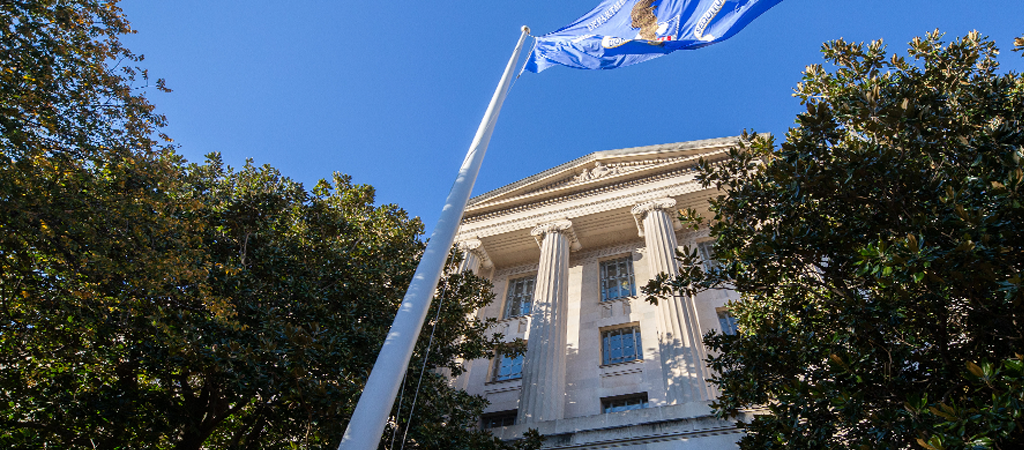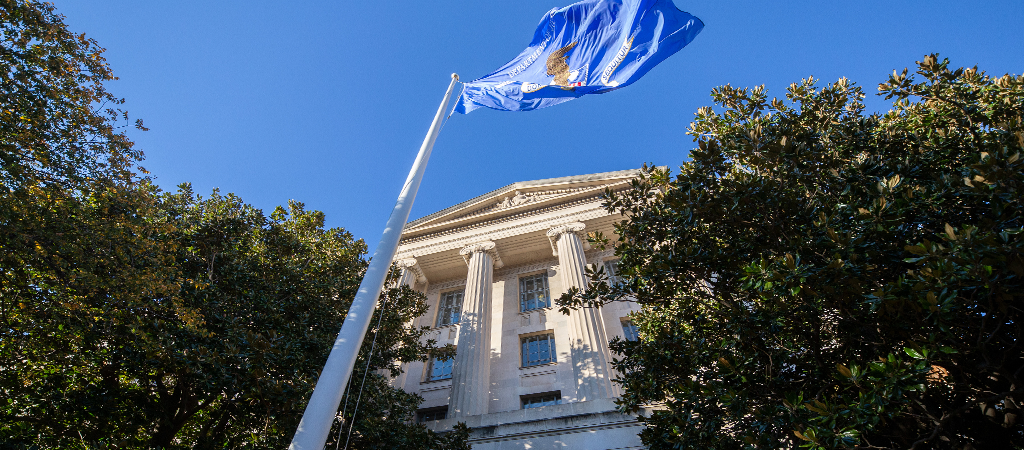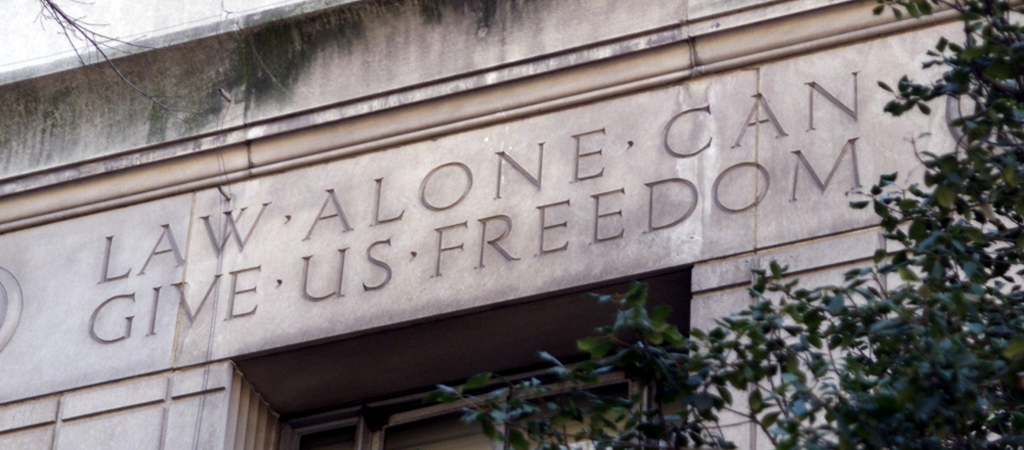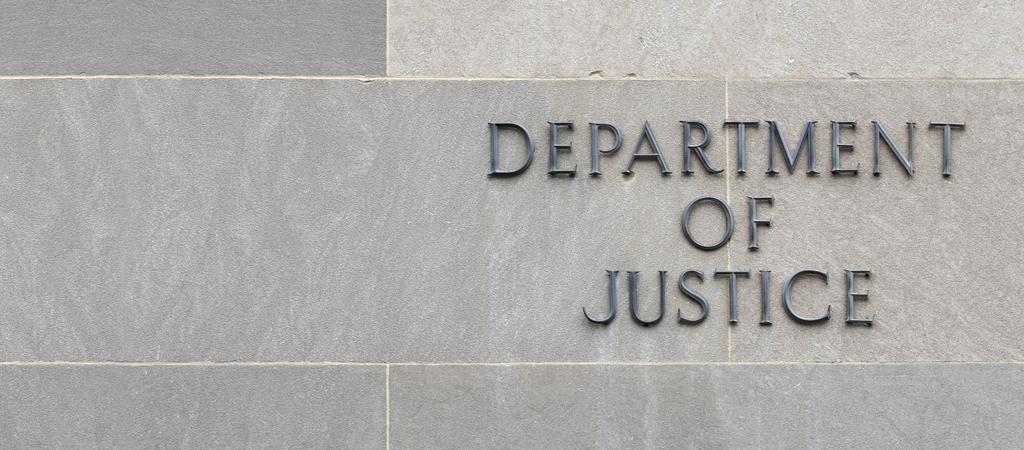Corporate Enforcement
The Criminal Division is a leader in the Department’s white-collar and corporate enforcement efforts. White-collar crime poses a significant threat to U.S. interests. Unchecked fraud in U.S. markets and government programs robs hardworking Americans and harms the public fisc. The deadly activities of Cartels and TCOs are enabled by international money laundering organizations and other financial facilitators. Illicit financial and logistical networks undermine our national security by enabling shadow-banking for and sanctions evasion by hostile nation-states and terror regimes. The Criminal Division is committed to rooting out such insidious conduct in corporate and white-collar investigations guided by three core tenets: (1) focus; (2) fairness; and (3) efficiency. The Criminal Division’s White-Collar Enforcement Plan can be found here.
Within the Criminal Division, the Fraud Section pioneered a corporate enforcement and voluntary self-disclosure policy in the Foreign Corrupt Practices Act Unit in 2016. In 2018, that policy, the Criminal Division’s Corporate Enforcement and Voluntary Self-Disclosure Policy (CEP) was extended to the entire Criminal Division. The Criminal Division’s CEP served as a model for voluntary self-disclosure programs adopted across the Department. Today, the Criminal Division, led by the Fraud Section in coordination with the Money Laundering, Narcotics and Forfeiture Section (MNF), is a center of innovation in corporate prosecutions and enforcement policy.
The Criminal Division’s CEP can be found here.
The Criminal Division’s Crediting Policy can be found here.
Companies that wish to voluntarily self-report misconduct can do so here.
Individuals that wish to voluntarily self-report misconduct can do so here.
Individuals that wish to blow the whistle can do so here.
Criminal Division Corporate Enforcement Pilot Programs
In May 2025, the Criminal Division updated the Corporate Whistleblower Awards Pilot Program (Whistleblower Pilot Program), a tool to identify corporate misconduct and hold wrongdoers accountable, to align with the Department’s highest priorities. Led by the Criminal Division, this Whistleblower Pilot Program is designed to incentivize individuals with information about corporate misconduct in certain areas to come forward and report to the Department. The Whistleblower Pilot Program is also designed to incentivize companies to disclose misconduct when they learn about it. To that end, the Criminal Division has issued a temporary amendment to the CEP that allows companies who receive a whistleblower’s report internally to qualify for the presumption of a declination when the company: (1) self-reports the conduct to the Department within 120 days of receiving the whistleblower’s submission, even if the whistleblower reports to the Department before the company does, and (2) meets the other requirements for voluntary self-disclosure and presumption of a declination under the policy.
In April 2024, the Criminal Division announced a Pilot Program on Voluntary Self-Disclosures For Individuals designed to encourage voluntary self-disclosures by participants in certain types of criminal conduct involving corporations. Those who participate in the pilot program and self-disclose, fully cooperate, pay applicable victim compensation, and return ill-gotten gains will receive a non-prosecution agreement.
In March 2023, the Criminal Division announced the Criminal Division's Pilot Program Regarding Incentives and Clawbacks. This two-part pilot program is a three-year initiative that requires every company resolving with the Criminal Division to implement criteria related to its compliance in its compensation and bonus system and provides for a fine reduction for companies that clawback or withhold compensation. The Criminal Division published a corporate enforcement note on the pilot program in November 2024.
Corporate Enforcement Matters
- Criminal Division Crediting Policy (June 2025)
- Criminal Division White-Collar Enforcement Plan (May 2025)
- Revised Criminal Division Corporate Enforcement and Voluntary Self-Disclosure Policy (May 2025)
- Memorandum on Selection of Monitors in Criminal Division Matters (May 2025)
- Evaluation of Corporate Compliance Programs (Sep. 2024)
- Temporary Amendment to the Criminal Division's Corporate Enforcement and Voluntary Self-Disclosure Policy (Aug. 2024)
- Evaluating a Business Organization's Inability to Pay a Criminal Fine or Criminal Monetary Penalty (Mar. 2019)
- 9-28.000 - Principles of Federal Prosecution of Business Organizations
- 9-28.800 - Corporate Compliance Programs
- 9-28.1700 - Use of Independent Compliance Monitors in Corporate Resolutions
- 9-47.120 - Revised Criminal Division Corporate Enforcement and Self-Disclosure Policy
- 1-12.100 - Coordination of Corporate Resolution Penalties in Parallel and/or Joint Investigations and Proceedings Arising from the Same Misconduct
- 1-12.100 - Coordination of Parallel Criminal, Civil, Regulatory, and Administrative Proceedings
- Head of The Criminal Division Matthew R. Galeotti Delivers Remarks at American Conference Institute Conference (June 10, 2025)
- Head of the Criminal Division Matthew R. Galeotti Delivers Remarks at SIFMA’s Anti-Money Laundering and Financial Crimes Conference (May 12, 2025)
- Chief Counselor Brent Wible Delivers Keynote Speech at the American Conference Institute’s International Conference on the Foreign Corrupt Practices Act (Dec. 5, 2024)
- Principal Deputy Assistant Attorney General Argentieri November 22, 2024 Blog Post on Transparency in Criminal Division Enforcement (Nov. 22, 2024)
- Principal Associate Deputy Attorney General Marshall Miller Delivers Remarks at the New York City Bar Association Compliance Institute (Oct. 23, 2024)
- Principal Deputy Assistant Attorney General Nicole M. Argentieri Delivers Remarks at the Society of Corporate Compliance and Ethics 23rd Annual Compliance & Ethics Institute (Sep. 23, 2024)
- Principal Deputy Assistant Attorney General Nicole M. Argentieri Delivers Remarks on Newly Announced Corporate Whistleblower Awards Pilot Program at NYU School of Law’s Program on Corporate Compliance and Enforcement (Sep. 17, 2024)
- Deputy Attorney General Lisa Monaco Delivers Remarks on New Corporate Whistleblower Awards Pilot Program (Aug 1, 2024)
- Principal Deputy Assistant Attorney General Nicole M. Argentieri Delivers Remarks on New Corporate Whistleblower Awards Pilot Program (Aug. 1, 2024)
- Acting Assistant Attorney General Nicole M. Argentieri Delivers Keynote Speech at the American Bar Association’s 39th National Institute on White Collar Crime (Mar. 8, 2024)
- Acting Assistant Attorney General Nicole M. Argentieri Delivers Opening Statement Before the Senate Judiciary Committee (Dec. 12, 2023)
- Deputy Assistant Attorney General Kevin Driscoll Delivers Remarks at the Global Forum on Asset Recovery Action Series in Atlanta (Dec. 12, 2023)
- Acting Assistant Attorney General Nicole M. Argentieri Delivers Remarks at the American Bar Association 10th Annual London White Collar Crime Institute (Oct. 10, 2023)
- Deputy Attorney General Lisa O. Monaco Announces New Safe Harbor Policy for Voluntary Self-Disclosures Made in Connection with Mergers and Acquisitions (Oct. 4, 2023)
- Deputy Assistant Attorney General Lisa H. Miller Delivers Remarks at the American Bar Association’s 33rd Annual National Institute on Health Care Fraud (May 4, 2023)
- Assistant Attorney General Kenneth A. Polite, Jr. Delivers Keynote Address at the Global Investigations Review Live: DC Spring Conference (Mar. 23, 2023)
- Deputy Assistant Attorney General Lisa H. Miller Delivers Remarks at the University of Southern California Gould School of Law on Corporate Enforcement and Compliance (Feb. 16, 2023)
- Assistant Attorney General Kenneth A. Polite, Jr. Delivers Remarks on Revisions to the Criminal Division’s Corporate Enforcement Policy (Jan. 17, 2023)
- Assistant Attorney General Kenneth A. Polite Jr. Delivers Remarks at ACAMS 2022 Hollywood Conference (Mar. 22, 2022)
- Assistant Attorney General Kenneth A. Polite Jr. Delivers Remarks at NYU Law’s Program on Corporate Compliance and Enforcement (PCCE) (Mar. 25, 2022)
- Assistant Attorney General Kenneth A. Polite Jr. Delivers Justice Department Keynote at the ABA Institute on White Collar Crime (Mar. 3, 2022)
- Assistant Attorney General Kenneth A. Polite Delivers Remarks at the University of Texas Law School (Sept. 16, 2022)
- Acting Deputy Assistant Attorney General Robert A. Zink Delivers Remarks at Virtual GIR Live Interactive: Regional Spotlight-North America (Dec. 9, 2020)
- Remarks of Acting Assistant Attorney General Brian C. Rabbitt at the ACI 37th Annual Conference on the FCPA (Dec. 3, 2020)
- Assistant Attorney General Brian A. Benczkowski Delivers Remarks at the American Conference Institute’s 36th International Conference on the Foreign Corrupt Practices Act (Dec. 4, 2019)

 U.S. Department
of Justice
U.S. Department
of Justice





